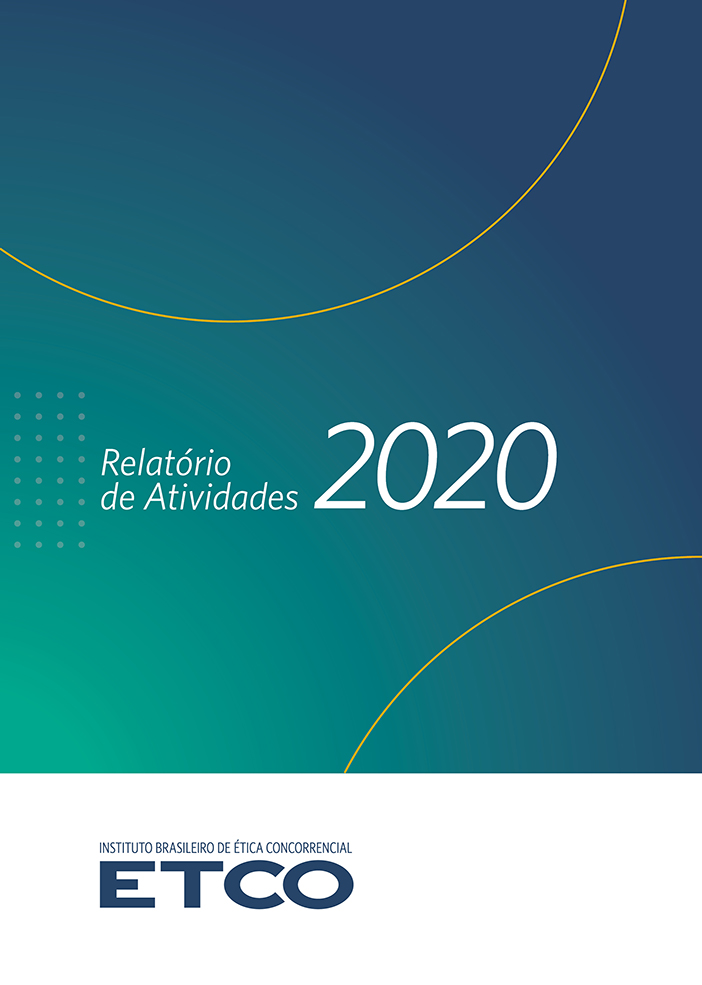Debate on tax litigation at Abradt

In December, the Brazilian Association of Tax Law (Abradt) held a virtual debate to discuss the findings of the study Desafios do Litigação Tributário, carried out for ETCO by the consulting firm EY. The event was attended by the executive president, Edson Vismona, and the chairman of the ETCO Advisory Board, Everardo Maciel, the president of Abradt, Valter Lobato, the executive director of the Applied Tax Studies Group (Getap), Zabetta Macarini Gorissen, and the president of the Brazilian Association of Financial Law (ABDF), Gustavo Brigagão, in addition to the partner in the tax area of EY, José Paulo Peixe, who presented the findings of the study.
The work was carried out based on public data on litigation in Brazil and in six other countries. Some highlights:
- Tax litigation has been growing both in absolute terms and in relation to the Brazilian GDP. From 2013 to 2018, the amounts in dispute or in the judicial collection process increased from BRL 2,28 trillion to BRL 3,44 trillion – or from 42,7% to 50,4% of GDP.
- The tax system has become increasingly complex. From 1988, when the Federal Constitution was enacted, until 2018, more than 390 tax rules were enacted in the country, in addition to 16 tax constitutional amendments.
- The disputes are extremely long. In 2017, the average time of a tax process in Brazil, until its final solution, was 18 years and 11 months.
- Tax litigation weighs heavily on the balance sheets of many of the largest publicly traded companies in the country. In some cases, it even exceeds the company's market value.
- An analysis of the best practices for litigation prevention adopted in the United States, Germany, Australia, Mexico, Portugal and India showed the importance of alternative dispute resolution mechanisms, such as mediation and arbitration.
In the debates that followed, the executive president of ETCO defended the creation of alternative methods of solving conflicts between the tax authorities and taxpayers and the simplification of the tax system. Vismona stated that the current legal uncertainty environment harms good taxpayers, scares off investors and benefits the so-called persistent tax debtors. "Consuming debtor is one who is structured to never pay taxes," he explained. "He takes advantage of this whole situation, this tax mess, to continue pushing what he owes, because he won't pay."
Vismona recalled that ETCO supports the approval of PLS 284/2017, which distinguishes debtors into different types, according to the recurrence of debt and impacts on competition, and authorizes a more rigorous treatment against the default debtor. And regretted that he has been stuck in the Senate since the beginning of the current legislature, in 2019.
Everardo Maciel, who was secretary of the Federal Revenue during the two terms of President Fernando Henrique Cardoso (1995 to 2002), presented his view on the causes of the high level of tax litigation in the country and the solutions he believes in. Some highlights of the presentation by the chairman of the ETCO Advisory Board:
- One of the main reasons for the high generation of tax litigation in Brazil is the fact that the tax authorities do not bear costs when making improper assessments.
- Another important cause, now under the responsibility of taxpayers, is the so-called "thesis industry", which benefits from the fact that the Federal Constitution contains an extensive volume of tax matters (the text on taxes is equivalent to twice the text of the entire Constitution of the United States, which does not deal with taxation). Thus, the possibilities of challenging the payment of taxes through constitutional challenges are enormous.
- Due to the diffuse control of constitutionality adopted in Brazil, taxpayers who have theses identical to the Court may receive opposing sentences from different judges. And, until the matter reaches the higher courts and is pacified, usually more than ten years later, those who lost may be forced to collect a tax that their direct competitor maintains the right to not pay.
- A change that would help to reduce litigation, according to the chairman of the ETCO Advisory Board, would be the integration of administrative and judicial proceedings. By allowing the administrative collection of taxes due, it would relieve the Judiciary. By instituting the loss of suit to the loser, it would make the tax authorities take more care before drawing up tax assessment notices.




